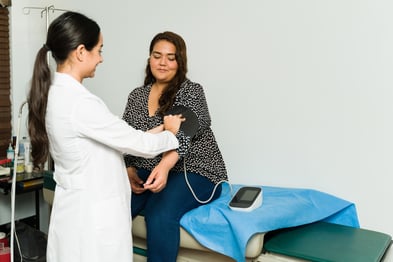Although body diversity is increasingly recognized and celebrated today, this recognition is somehow lacking in professional fields, particularly medicine. As frequently happens, plus size individuals often face challenges when seeking healthcare that include inadequate medical equipment and insensitive communication from healthcare providers. The medical community must acknowledge and address these concerns to ensure that every patient receives respectful and inclusive care.
It is only possible if greater awareness and sensitivity toward plus-size patients exist. Similarly, by understanding the specific needs and challenges plus-size patients face, healthcare professionals can take proactive steps to provide accommodating facilities, respectful communication, and tailored treatment approaches. Let’s discuss how.
Availability of Medical Equipment
Medical equipment is rarely designed to accommodate larger body sizes, or any body size, for that matter. Standard MRI machines, examination tables, and blood pressure cuffs often have weight and size limitations, making it difficult for some patients to undergo necessary medical procedures or receive proper care. This leads to delayed diagnoses and discomfort for the patient.
For instance, narrow examination tables can be unstable and pose a risk of injury, while standard blood pressure cuffs may not fit properly, showing inaccurate readings. Additionally, many MRI machines have strict weight limits, forcing some patients to travel long distances to access facilities with larger-capacity machines. These obstacles compromise the quality of care and discourage individuals from seeking medical attention.
Respectful and non-judgmental Communication
Respectful and non-judgmental communication is fundamental to providing quality healthcare to plus-size patients. Too often, these individuals face stigma, bias, and insensitive remarks from medical professionals, which leads to shame, anxiety, and reluctance to seek necessary care. It is crucial for doctors to treat every patient with empathy, compassion, and an open mind, regardless of their size or appearance.
Doctors should avoid assumptions or passing judgments on a patient's weight or size. Making comments about weight loss or attributing all health concerns to a person's size can be dismissive of their unique circumstances. Instead, doctors should actively listen to patients' problems, ask open-ended questions, and address their needs without bias or preconceived notions.
Inclusive Care
The inclusive care for plus-size patients goes beyond addressing physical health concerns. It is the duty of doctors to recognize potential comorbidities that may accompany larger body sizes, such as increased risk for conditions like diabetes, heart disease, and certain types of cancer. Doctors can develop personalized treatment plans considering these factors to use preventive strategies.
Moreover, the emotional well-being of plus-size patients should not be overlooked. The societal stigma and discrimination can take a significant toll on their self-esteem, and mental health. Doctors should create a supportive environment where patients feel comfortable discussing their concerns, and accessing resources for emotional support. Doctors should actively educate themselves on available support services, such as counseling, support groups, or specialized programs.
The concerns and needs of plus-size patients are real, so creating an inclusive and accommodating healthcare environment is necessary. To discuss these needs, health professionals should provide medical facilities with equipment that can accommodate larger body sizes. Additionally, prioritizing mental health and emotional well-being, and being knowledgeable about available resources and support services, can greatly improve the overall patient experience.
By implementing these measures, the medical community can ensure that plus-size individuals receive the high-quality, compassionate care they deserve. We encourage readers to share their own experiences and perspectives on this important topic, as open dialogue and awareness are essential for driving positive change and creating a more inclusive healthcare system for all.



